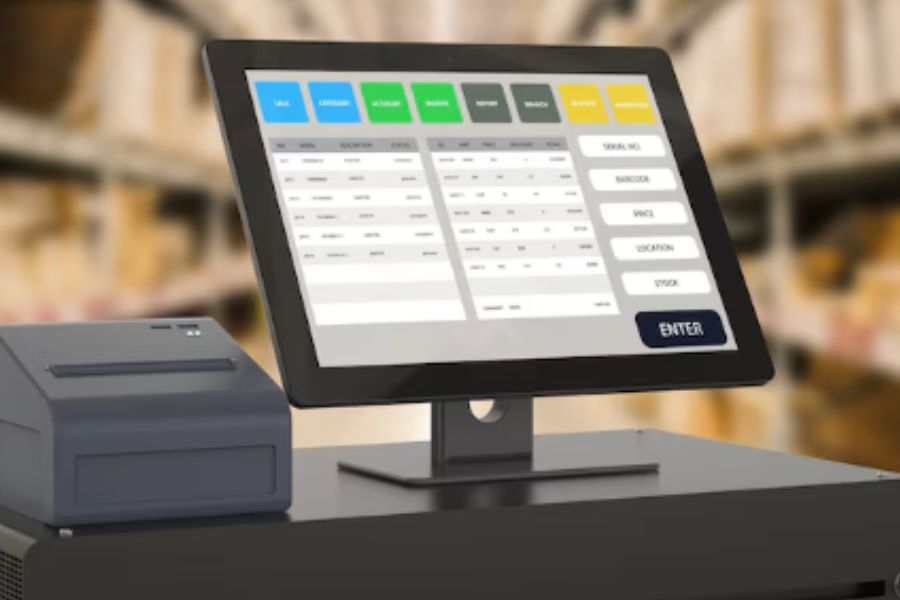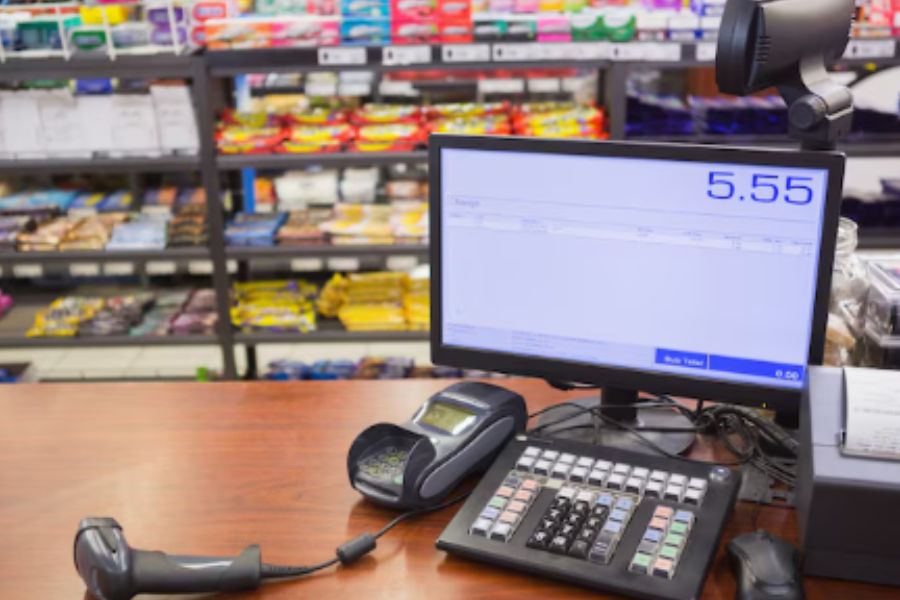With an estimated 400 million guns in circulation, the United States has one of the highest per capita rates of firearm ownership in the world. This vast number underscores the importance of regulating firearm transactions, which is where Federal Firearms Licenses (FFLs) come into play. FFLs were established to ensure that firearms are sold, manufactured, and imported in a controlled manner, keeping public safety at the forefront. This guide will walk you through the types of FFLs, the eligibility requirements, the application process, and the importance of maintaining compliance with FFL regulations. This is the first step for anyone looking to enter the firearms industry legally and responsibly!
Highlights
- A Federal Firearms License (FFL) is a legal authorization that allows individuals or businesses to manufacture, import, or sell firearms and ammunition.
- To obtain an FFL, applicants must meet basic eligibility criteria, fulfill specific business requirements, and comply with state and local laws.
- Regularly audit your records, stay updated on local and federal regulations, and ensure accurate documentation of all firearm transactions.
What is a Federal Firearms License (FFL)?
A Federal Firearms License (FFL) is a license issued by the Bureau of Alcohol, Tobacco, Firearms, and Explosives (ATF) that allows individuals or companies to engage in activities related to the manufacturing, importation, and sale of firearms and ammunition. This license is essential for ensuring that the commerce of firearms is conducted legally and responsibly.
It is required for those who want to become firearm dealers, manufacturers, importers, or collectors of firearms classified as curios and relics. The FFLs system helps regulate the firearms industry and ensures compliance with federal laws and regulations.
11 Types of FFLs
There are 11 types of Federal Firearms Licenses (FFLs), each designed for specific activities related to firearms and ammunition:
- Type 01 – Dealer in Firearms (Other Than Destructive Devices)
This license allows individuals or businesses to engage in the retail sale of firearms and ammunition, excluding destructive devices.
- Type 02 – Pawnbroker
This license permits individuals or businesses to operate as pawnbrokers dealing in firearms and ammunition, excluding destructive devices.
- Type 03 – Collector
This license permits individuals or businesses to operate as pawnbrokers dealing in firearms and ammunition, excluding destructive devices.
- Type 06 – Manufacture of Ammunition
This license allows for the manufacture of ammunition and reloading components, excluding armor-piercing ammunition.
- Type 07 – Manufacturer of Firearms
This license permits the manufacturing of firearms and ammunition, excluding destructive devices, and also allows for dealing in firearms.
- Type 08 – Importer of Firearms
This license allows individuals or businesses to import firearms and ammunition for resale.
- Type 09 – Dealer of “Destructive Devices”
This license allows for the retail sale of destructive devices, which include items such as grenades, bombs, and other explosive weapons.
- Type 10 – Manufacturer of “Destructive Devices”
This license permits the manufacture of destructive devices, ammunition for destructive devices, and armor-piercing ammunition.
- Type 11 – Importer of “Destructive Devices”
This license allows for the importation of destructive devices, ammunition for destructive devices, and armor-piercing ammunition.
Eligibility Requirements for Obtaining an FFL
Obtaining a Federal Firearms License (FFLs) is a detailed process that ensures only qualified individuals and businesses can legally engage in the manufacturing, importation, and sale of firearms and ammunition. This guide outlines the comprehensive eligibility requirements for obtaining an FFL.
Basic Eligibility Criteria
These are the foundational criteria for determining FFL qualification, ensuring applicants meet legal and ethical standards:
To apply for an FFL, the applicant must:
- Be at least 21 years old. This age requirement is non-negotiable and ensures that only mature and responsible individuals are involved in the firearms industry.
- Be a U.S. citizen or a legal permanent resident. The applicant must provide proof of citizenship or legal residency status.
- Not be prohibited from handling or possessing firearms and ammunition. Disqualifying factors include certain criminal convictions, restraining orders, or disqualifying mental health conditions.
The ATF conducts a thorough background check on every applicant. This includes:
- Criminal history review: The ATF will examine the applicant’s criminal record to ensure they have not been convicted of crimes that would disqualify them from possessing or dealing in firearms.
- Mental health records: The ATF will review the applicant’s mental health history to ensure there are no issues that would make it unsafe for them to handle firearms.
- Verification of personal information: The ATF will verify all personal information provided in the application to ensure its accuracy and truthfulness.
Business Requirements
Applicants must demonstrate a legitimate intent to engage in business related to firearms. This involves several key elements:
Zoning Laws and Business Premises
- Compliance with local zoning laws: The proposed business location must be in an area where operating a firearms-related business is legally permitted. Applicants may need to obtain zoning approval from local authorities.
- Appropriate business premises: The location must have a designated area for conducting business activities. This can include a storefront, office, or other commercial space that meets local and federal requirements.
- Security measures: Adequate security measures must be in place to prevent unauthorized access to firearms and ammunition. This includes secure storage solutions, alarm systems, and surveillance equipment.
Record-Keeping and Security Measures
Maintaining accurate records and implementing robust security measures are critical for FFL holders. These practices ensure compliance with federal laws and help prevent firearms from falling into the wrong hands.
- Record-keeping requirements: FFL holders must keep detailed records of all firearms transactions. This includes keeping bound books that log each firearm received and sold, and submitting reports to the ATF as required.
- Security measures: FFL holders must implement adequate security measures to protect firearms and ammunition. This includes using secure storage solutions, installing alarm systems, and utilizing surveillance cameras.
Compliance with State and Local Laws
Understanding and complying with state and local laws is essential for obtaining and maintaining an FFL. These laws vary widely and can have an impact on the operations of firearms-related businesses.
Understanding Local Regulations
- Researching local laws: Applicants must thoroughly research local firearms laws to ensure compliance. This may involve consulting with legal professionals or contacting local authorities.
- Obtaining necessary permits: In addition to the FFL, applicants may need to obtain additional permits or licenses required by local or state authorities.
- Community impact: Applicants should consider the potential impact of their business on the local community and take steps to address any concerns.
Compliance with State-Specific Requirements
- State-specific regulations: Each state has its own regulations regarding firearms. Applicants must familiarize themselves with these regulations and ensure they meet all state-specific requirements.
- State-level background checks: Some states require additional background checks or screenings beyond the federal requirements. Applicants must comply with these additional checks.
- Ongoing compliance: FFL holders must stay informed about changes in state and local laws and ensure ongoing compliance to avoid legal issues and maintain their license.
Application Process for an FFL
If you are wondering how to apply for an FFL, check out the below process.
Step 1: Fulfill All FFL Requirements
Before beginning the application process, confirm that you meet all eligibility criteria set by the Bureau of Alcohol, Tobacco, Firearms, and Explosives (ATF). This includes being at least 21 years old, having no felony convictions, and being legally permitted to conduct firearms-related business.
Step 2: Select the Correct Type of FFL
There are several types of FFLs, as mentioned above. Each type caters to different aspects of the firearms industry, such as dealing, manufacturing, or collecting. It’s important to identify the correct type for your business needs to ensure a successful application.
Step 3: Complete ATF Form 7
The next step is to accurately fill out ATF Form 7, the official application for a Federal Firearms License. This form requires detailed personal and business information, so take your time to ensure all information is correct and complete.
Step 4: Submit Fingerprints and Photographs
As part of the background check process, you must provide a set of fingerprints and recent photographs. These are used to verify your identity and conduct a thorough background investigation.
Step 5: Pay the Application Fee
An application fee is required when submitting your FFL application. The fee amount varies depending on the type of FFL you are applying for, so be sure to check the current fee structure on the ATF website.
Step 6: Undergo a Background Check
The ATF will conduct a comprehensive background check to ensure you meet all legal requirements and have no disqualifying factors. This step is crucial in the approval process and can take several weeks to complete.
Step 7: Interview with an Industry Operations Investigator (IOI)
An IOI will contact you to schedule an interview. During this meeting, they will review your application, inspect your premises, and discuss your business operations to ensure compliance with federal regulations.
Step 8: Wait for Approval
After the interview and final review, the ATF will make a decision on your application. If approved, you will receive your Federal Firearms License, allowing you to legally operate within the firearms industry.
Hopefully this guide has enough information for you!
Maintaining Compliance with FFL Regulations
Once you’ve obtained your Federal Firearms License (FFL), maintaining compliance with regulations becomes crucial to your continued success and legality in the firearms industry.
Here are the essential practices for staying compliant:
Regular Record-Keeping
Meticulous record-keeping is a cornerstone of FFL compliance. As an FFL holder, you’re required to maintain detailed records of all firearm transactions, including acquisitions, sales, and transfers. This documentation must be accurate and up-to-date.
To manage these stringent requirements effectively, ConnectPOS offers a powerful point-of-sale system tailored to the unique needs of firearm retailers. It’s a comprehensive solution that handles everything from age verification to detailed inventory management. With ConnectPOS, you can keep track of every firearm in your inventory, ensuring that each transaction is accurately recorded and compliant with FFL regulations.
But ConnectPOS goes a step further by integrating seamlessly with FastBound, a trusted name in the firearms industry for automating record-keeping. FastBound specializes in the meticulous documentation required by the ATF. When combined with ConnectPOS, you get a robust system that tracks your inventory in real time and ensures that every sale, acquisition, and transfer is logged with precision.
This integration allows you to maintain compliance effortlessly while focusing on your business. With ConnectPOS and FastBound working together, you can be confident that your records are accurate, your inventory is well-managed, and your business is always prepared for any audit.
Adherence to Federal Laws
Compliance with federal firearms laws is mandatory for all FFL holders. This includes performing background checks on purchasers, following proper procedures for firearm transfers, and adhering to all legal requirements concerning firearm sales. Regularly review and update your understanding of these laws to ensure that your business practices remain in line with current regulations. Staying informed will help you avoid legal pitfalls and maintain a reputable business.
Ongoing Training
Continued education and training are essential for keeping up with evolving regulations and best practices. Ensure that you and your employees participate in regular training sessions on federal firearms laws, safety procedures, and proper firearm handling. This ongoing education will help maintain high standards within your operation and ensure that your business practices are compliant with federal requirements.
By integrating robust systems like ConnectPOS for record-keeping and committing to continuous education, you’ll be well-equipped to navigate the complexities of FFL compliance. These practices will help you maintain a lawful and efficient firearms business, fostering trust and reliability in the industry.
FAQs: FFLs
- What is the most common FFL type?
The most common type of Federal Firearms License (FFL) is the Type 01 FFL. This license is for dealers in firearms other than destructive devices. It allows the licensee to sell and transfer firearms and ammunition, perform gunsmithing activities, and conduct other business activities related to firearms sales.
This type of license is popular among retail gun stores, pawn shops, and individuals who wish to engage in the business of selling firearms.
- What are the disadvantages of FFL?
While holding a Federal Firearms License (FFL) offers numerous benefits, there are also several disadvantages to consider:
- Regulatory Compliance: FFL holders must comply with extensive federal, state, and local regulations. This includes maintaining detailed records of all firearms transactions, conducting background checks on buyers, and adhering to strict storage and security requirements. Non-compliance can result in severe penalties, including fines and license revocation.
- Inspections and Audits: FFL holders are subject to regular inspections and audits by the Bureau of Alcohol, Tobacco, Firearms and Explosives (ATF). These inspections can be time-consuming and require meticulous record-keeping. Any discrepancies or violations found during these inspections can lead to penalties.
- Application Process: Obtaining an FFL involves a rigorous application process, including background checks, fingerprinting, and interviews. The process can be lengthy and requires a thorough understanding of firearms laws and regulations.
- Costs: There are various costs associated with obtaining and maintaining an FFL, including application fees, renewal fees, and costs related to compliance and record-keeping. Additionally, FFL holders may need to invest in security measures, such as safes and alarm systems, to comply with storage requirements.
- Liability and Risk: FFL holders assume significant liability and risk. They must ensure that firearms are not sold to prohibited individuals and that all transactions comply with legal requirements. Any negligence or failure to comply with regulations can result in legal action, both civil and criminal.
- Public Scrutiny: FFL holders may face public scrutiny and opposition, particularly in areas with strong anti-gun sentiment. This can affect business operations and create additional challenges in maintaining a positive public image.
Despite these disadvantages, many individuals and businesses find that the benefits of holding an FFL, such as the ability to legally sell and transfer firearms, outweigh the challenges.
Conclusion
Implementing the complexities of obtaining and maintaining FFLs is essential for anyone serious about engaging in the firearms industry. Understanding the different types of FFLs, meeting eligibility requirements, and adhering to the application process can ensure legal and responsible operations. Once licensed, ongoing compliance with federal regulations and diligent record-keeping are critical.
By leveraging advanced systems like ConnectPOS, FFL holders can streamline operations, ensuring efficient and accurate compliance. For more information on how ConnectPOS can assist in maintaining FFL compliance, don’t hesitate to contact us today.



